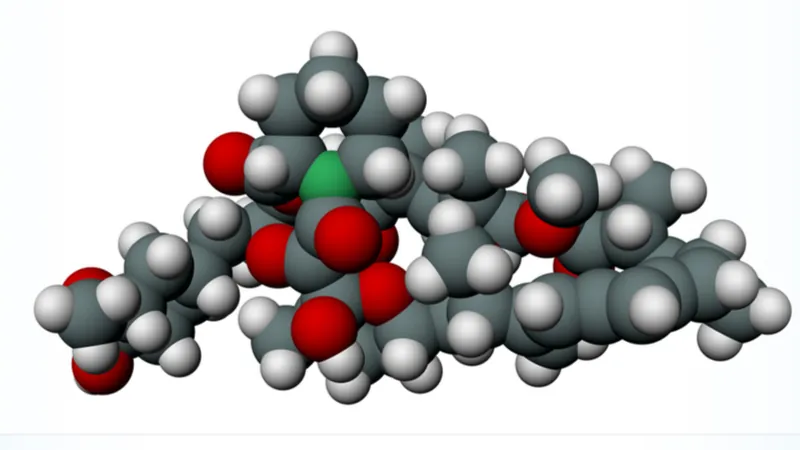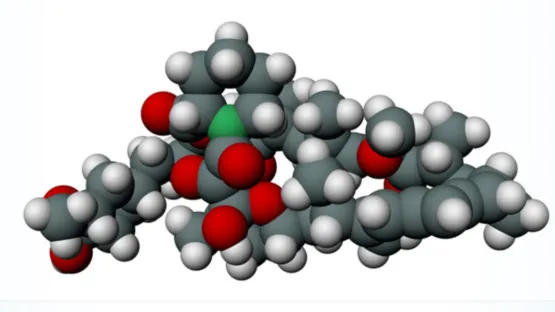Although rapamycin reliably extends lifespan in a range of organisms, new research shows that it does not achieve this via the same pathways as caloric restriction [1]. Understanding how the two processes differ and interact could help researchers eventually piece together the longevity puzzle.
Caloric or dietary restriction (CR) is perhaps the most robust, effective method known to increase lifespan. Its effects were first reported nearly 100 years ago and have been confirmed in many experiments in a wide variety of organisms since then. In the last two decades, rapamycin has emerged as a potential CR mimetic – a drug that can accomplish the same effect without the hassle of counting calories.
Now, a team of researchers in the Netherlands used progeroid mice to investigate whether rapamycin really is a CR mimetic. These Ercc1Δ/- mice have defective DNA repair and live for only 4-6 months. Surprisingly, they are more sensitive to caloric restriction than wild-type mice, with their lifespan more than doubling under conditions that lead to only a 30% increase in wild-type mice. This sensitivity makes them ideal for testing a CR mimetic, since even a small effect should be detectable.
When young Ercc1Δ/- mice were fed rapamycin-supplemented food, no increase in lifespan was detected. The researchers repeated the experiment in older mice and still found no increase. Likewise, varying the rapamycin dosage didn’t lead to a longer (or shorter) lifespan in Ercc1Δ/- mice. Although caloric restriction clearly increases their lifespan, rapamycin seems to have no effect.
The team dug a bit further to see if rapamycin might have been making the mice healthier even if they didn’t live longer. In liver health assays and evaluation of the vascular and nervous system, as well as neurological degeneration, Ercc1Δ/- mice fed rapamycin consistently looked similar to those on a control diet and different from those on a CR diet. Finally, the researchers also genetically altered mammalian target of rapamycin (mTOR) signaling in Ercc1Δ/- mice and still found no effect on lifespan or healthspan.
Dietary restriction (DR) and rapamycin extend healthspan and life span across multiple species. We have recently shown that DR in progeroid DNA repair-deficient mice dramatically extended healthspan and trippled life span. Here, we show that rapamycin, while significantly lowering mTOR signaling, failed to improve life span nor healthspan of DNA repair-deficient Ercc1∆/− mice, contrary to DR tested in parallel. Rapamycin interventions focusing on dosage, gender, and timing all were unable to alter life span. Even genetically modifying mTOR signaling failed to increase life span of DNA repair-deficient mice. The absence of effects by rapamycin on P53 in brain and transcription stress in liver is in sharp contrast with results obtained by DR, and appoints reducing DNA damage and transcription stress as an important mode of action of DR, lacking by rapamycin. Together, this indicates that mTOR inhibition does not mediate the beneficial effects of DR in progeroid mice, revealing that DR and rapamycin strongly differ in their modes of action.
Conclusion
Altogether, these experiments are a pretty clear demonstration that however rapamycin extends lifespan, it isn’t a caloric restriction mimetic, and the two probably affect lifespan via different mechanisms. However, there are lots of studies linking caloric restriction with TOR signaling, so there’s probably some crosstalk between the various pathways. The fact that rapamycin doesn’t seem to work in Ercc1Δ/- mice but has worked well in lots of other organisms suggests that its effect might be mediated via DNA repair mechanisms. While rapamycin no longer offers hope as a substitute for the hard work of caloric restriction, we now have the benefit of two reliable, different longevity treatments to compare and investigate.
Literature
[1] Brikisdóttir MB, Jaarsma D, Brandt RMC, Barnhoorn S, van Vliet N, Imholz S, van Oostrom CT, Nagaraja B, Portilla Fernández E, Roks AJF, Elgersma Y, van Steeg H, Ferreira JA, Pennings JLA, Hoeijamkers JHJ, Vermeij WP, Dollé MET. Unlike dietary restriction, rapamycin fails to extend lifespan and reduce transcription stress in progeroid DNA repair-deficient mice. Aging Cell (2020), doi: 10.1111/acel.13302

